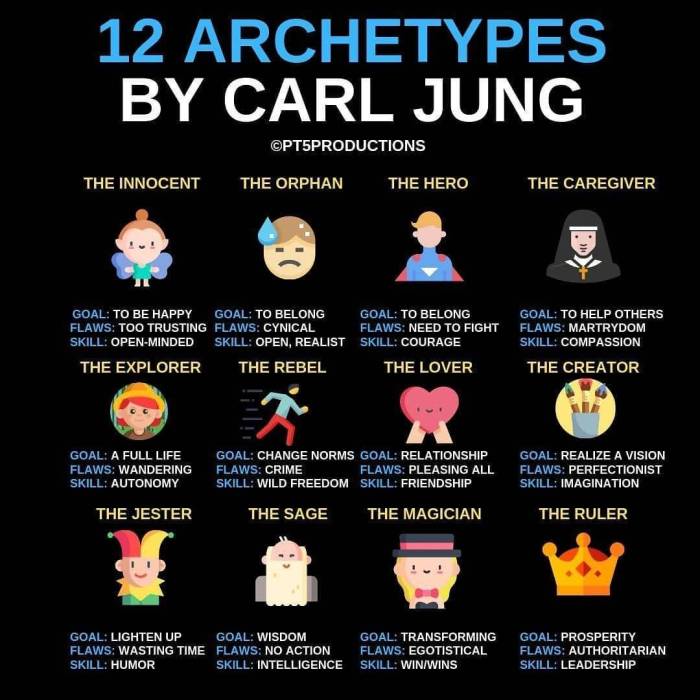The archetypal hero’s great deed stands as a cornerstone of literature and mythology, embodying the extraordinary feats that shape human narratives. These deeds, often imbued with profound symbolism and cultural significance, have captivated audiences for centuries, inspiring awe and admiration.
From the epic battles of ancient Greece to the heroic quests of modern fantasy, the archetypal hero’s great deed transcends time and culture, reflecting the universal human desire for greatness and the pursuit of noble ideals.
Definition and Concept

The archetypal hero’s great deed refers to a significant and extraordinary accomplishment that defines the hero’s journey and shapes their legacy. It is a transformative event that tests the hero’s limits, reveals their true nature, and profoundly impacts the world around them.
Great deeds often involve overcoming adversity, vanquishing evil, or bringing about a profound change for the betterment of society.
Examples of great deeds performed by archetypal heroes include Hercules’ defeat of the Nemean Lion, Odysseus’s return to Ithaca after the Trojan War, and King Arthur’s establishment of the Knights of the Round Table.
Characteristics and Traits
Archetypal heroes who perform great deeds often possess a unique set of characteristics and traits that set them apart from ordinary individuals. These traits include:
- Exceptional strength, courage, and determination
- A deep sense of purpose and a willingness to sacrifice for the greater good
- Unwavering loyalty to their values and beliefs
- A keen intellect and the ability to think strategically
- A strong moral compass and a desire to uphold justice
Cultural and Historical Context, The archetypal hero’s great deed
The archetypal hero’s great deed is often shaped by the cultural and historical context in which it occurs. In ancient Greek mythology, for example, great deeds were often associated with the gods and goddesses, who were believed to intervene in human affairs and bestow their favor upon heroes who demonstrated exceptional valor and virtue.
In medieval European literature, great deeds were often performed by knights and warriors who embodied the ideals of chivalry and courtly love.
Impact and Consequences
The archetypal hero’s great deed has a profound impact on both the hero and the world around them. It can bring about personal transformation, inspire others to greatness, and shape the course of history.
However, great deeds can also have negative consequences. The hero may face physical or emotional scars, or they may become consumed by their own hubris and lose sight of their true purpose.
Symbolism and Archetypes
The archetypal hero’s great deed often takes on a symbolic and archetypal significance. It may represent the triumph of good over evil, the overcoming of obstacles, or the journey from darkness to light.
These archetypal elements contribute to the universal appeal of the archetypal hero, as they resonate with the human experience and the desire for redemption, transformation, and triumph.
FAQ Section: The Archetypal Hero’s Great Deed
What is the significance of the archetypal hero’s great deed?
The archetypal hero’s great deed represents the pinnacle of human achievement, embodying the highest ideals and aspirations of a society or culture. It often serves as a catalyst for transformation, both for the hero and the world around them.
What are some common characteristics of archetypal heroes who perform great deeds?
Archetypal heroes who perform great deeds typically possess extraordinary strength, courage, intelligence, and determination. They are often driven by a deep sense of purpose and a desire to make a meaningful contribution to their society.
How do cultural and historical influences shape the archetypal hero’s great deed?
Cultural and historical influences play a significant role in shaping the archetypal hero’s great deed. These deeds often reflect the values, beliefs, and aspirations of the society in which they are created.
